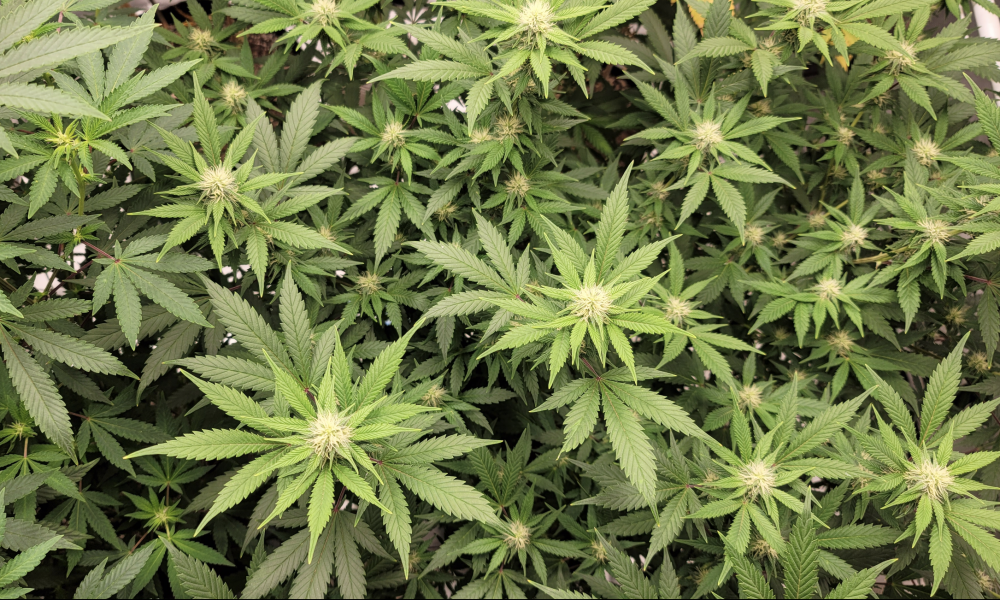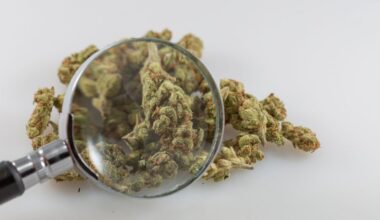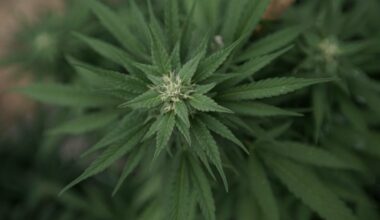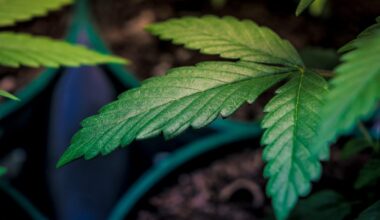The U.S. House of Representatives on Thursday approved several marijuana reform amendments as part of a large-scale defense bill, including proposals to protect banks that work with state-legal cannabis businesses and allow U.S. Department of Veterans Affairs (VA) doctors to issue medical marijuana recommendations.
A total of nine drug policy measures passed the chamber as part of the National Defense Authorization Act (NDAA) this week, after being made in order for floor consideration by the Rules Committee on Tuesday.
On Wednesday, the House first approved a bipartisan pair of psychedelics research amendments, as well as another measure requiring a military study into marijuana-related enforcement discrimination in the armed services. Those were part of the first en bloc package of measures that were taken up on the floor.
Subsequent packages contained a wide range of cannabis proposals. One amendment from Rep. Ed Perlmutter (D-CO) that advocates and stakeholders have been monitoring especially closely contains the language of the Secure and Fair Enforcement (SAFE) Banking Act, which would protect financial institutions that service state-legal marijuana businesses from being penalized by federal regulators.
Perlmutter discussed the measure in the Rules Committee on Tuesday, arguing that it was germane to the defense legislation because it could help combat international drug trafficking, which poses a national security risk. The House adopted the amendment as part of last year’s NDAA, but the Senate didn’t go along so it was not included in the final bill.
—
Marijuana Moment is tracking more than 1,500 cannabis, psychedelics and drug policy bills in state legislatures and Congress this year. Patreon supporters pledging at least $25/month get access to our interactive maps, charts and hearing calendar so they don’t miss any developments.![]()
Learn more about our marijuana bill tracker and become a supporter on Patreon to get access.
—
The congressman also tried getting marijuana banking reform included in a large-scale manufacturing bill that’s in bicameral conference, but leadership agreed to exclude the language, prompting him to pursue another vehicle.
Meanwhile, an amendment from Reps. Earl Blumenauer’s (D-OR) and Brian Mast (R-FL) to codify that VA doctors can discuss and issue recommendations for medical cannabis to veterans also passed the House.
In a Dear Colleague letter that was shared with Marijuana Moment, Blumenauer and Mast talked about the unique therapeutic potential of cannabis for veterans suffering from PTSD and argued that current VA policy prohibiting doctors from issuing recommendations “forces veterans to seek care outside of the VA to receive opinions and recommendations on this care option.”
“VA physicians should not be denied the ability to offer a recommendation that they think may meet the needs of their patients,” they wrote. “Veterans should not be forced outside the VA system to seek treatment that is legal in their state.”
A bipartisan group of lawmakers, including Blumenauer, separately filed an amendment to an appropriations minibus on Wednesday that would block VA from preventing military veterans from using medical cannabis while allowing its doctors to fill out recommendations for patients who want to participate in state programs.
Rep. Nancy Mace (R-SC) had an amendment to NDAA adopted that similarly provides VA doctors with that authority, but it goes further by prohibiting federal employers from discriminating against veterans who use, or have used, marijuana.
The House additionally approved a revised measure from Rep. Katherine Clark (D-MA) that expresses the sense of Congress that VA should not deny home loans to veterans because they derive income from a state-legal marijuana business. The proposal was initially introduced as an outright prohibition of such denials, but was changed to a nonbinding form.
Rep. Alexandria Ocasio-Cortez (D-NY) secured two drug policy amendments to the NDAA. One that passed on Wednesday builds on a measure from Rep. Seth Moulton (D-MA), requiring the Department of Defense (DOD) to study marijuana as an opioid alternative in the treatment of service members with post-traumatic stress disorder (PTSD), traumatic brain injuries and severe pain. Ocasio-Cortez’s proposal widens the scope of that research to include psilocybin and MDMA.
Then on Thursday, the congresswoman’s amendment to prevent the use of funds for aerial fumigation on drug crops in Colombia was adopted. The practice has been widely criticized by reform and human rights advocates.
The other psychedelics amendment that cleared the chamber on Wednesday was sponsored by Rep. Dan Crenshaw (R-TX). It would allow the secretary of defense to approve grants for research into the therapeutic potential of certain psychedelics such as MDMA, psilocybin, ibogaine and 5–MeO–DMT for active duty military members with PTSD.
Notably, an earlier, identical version of the was not made in order for the floor as part of last year’s NDAA, signaling that attitudes toward psychedelics have shifted in Congress over recent months.
The House on Wednesday also passed a measure from Rep. Rashida Tlaib (D-MI) that would require DOD to study the “historically discriminatory manner in which laws related to marijuana offenses have been enforced, the potential for the continued discriminatory application of the law (whether intentional or unintentional), and recommendations for actions that can be taken to minimize the risk of such discrimination.”
Finally, lawmakers passed an amendment on Thursday that was filed by Rep. Mikie Sherrill (D-NJ). It seeks to eliminate the federal sentencing disparity between crack and powder cocaine.
The Perlmutter, Blumenauer and Clark measures on banking and veterans were adopted as part of an en bloc package with dozens of other amendments by a roll call vote of 277-150, and the Ocasio-Cortez proposal on drug crop fumigation was included in another group that passed with a 330-99 vote. All of the other amendments were adopted in separate packages via voice votes.
What remains to be seen is which, if any, of these amendments makes it through conference after the Senate advances its version of NDAA. The chamber has generally been viewed as a barrier to enacting drug policy reform, especially with Republican minority leadership frequently challenging amendment germaneness.
Photo courtesy of Mike Latimer.
Medical Disclaimer:
The information provided in these blog posts is intended for general informational and educational purposes only. It is not a substitute for professional medical advice, diagnosis, or treatment. Always seek the advice of your physician or other qualified healthcare provider with any questions you may have regarding a medical condition. The use of any information provided in these blog posts is solely at your own risk. The authors and the website do not recommend or endorse any specific products, treatments, or procedures mentioned. Reliance on any information in these blog posts is solely at your own discretion.






